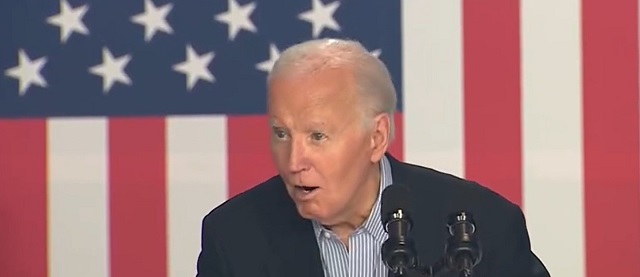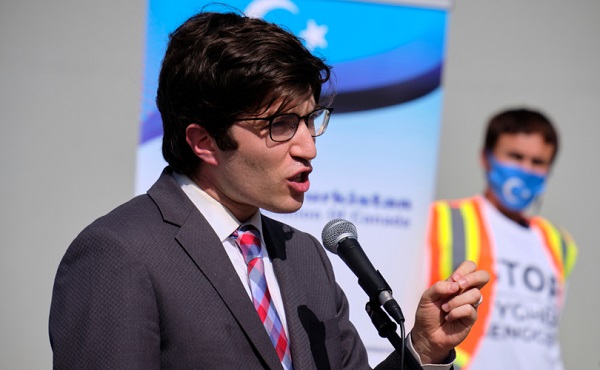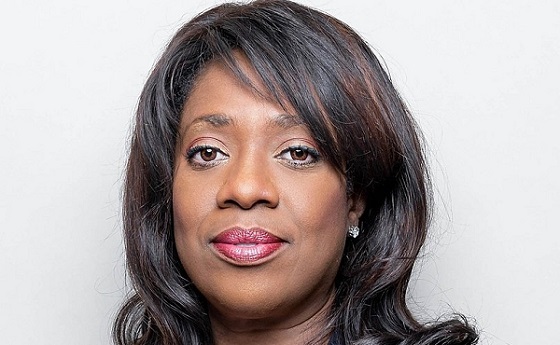International
Major Dem Donors Freeze $90 Million Until Biden Drops Out: REPORT

 From the Daily Caller News Foundation
From the Daily Caller News Foundation
Major Democratic donors have paused contributions totaling roughly $90 million to the largest pro-Biden super PAC, opting to hold their money unless the president drops out of the race, the New York Times reported on Friday.
Donors have frozen multiple eight-figure donations they had promised to Future Forward PAC — the committee designated by the Biden campaign as its leading super PAC — amid worries that the president is in a uniquely weak position ahead of November’s election, two individuals familiar with the situation told the NYT.
Democratic donors are also planning on diverting money away from the presidential election and toward down-ballot elections to hedge against what they view as increasingly likely defeat in the race for the White House.
“I think that the dam has broken and that more and more people will come out publicly,” long-time Democratic donor Whitney Tilson said in early July. “There is basically no — almost no support remaining for him as a candidate.”
In the weeks following the June 27 presidential debate where President Joe Biden appeared disoriented and struggled to articulate, 19 Democratic members of Congress and numerous liberal pundits have called on the president to drop out of the race, according to the NYT. Even Biden’s reelection operation seems to be testing the waters, with the president’s campaign reportedly testing Vice President Kamala Harris’ viability against Trump, according to the New York Post.
“He needs to drop out,” one Biden campaign official told NBC News. “He will never recover from this.”
The blow to Biden’s campaign finance operation follows former President Donald Trump’s campaign erasing the president’s fundraising lead in May. Trump and the Republican National Committee had $171 million in cash on hand as of the most recent campaign finance reports, compared to the just $157 million held by the Biden campaign and the Democratic National Convention, The Hill reported.
The primary super PAC supporting Trump, MAGA Inc., had $93.7 million in cash reserves as of May while Future Forward PAC had a slightly smaller war chest of $92.3 million, according to Federal Election Commission records. Much of the funds taken in by MAGA Inc., however, are being diverted to cover Trump’s legal expenses, according to CNN.
One Future Forward advisor told the NYT they believe the donations will return once the current uncertainty regarding the Democratic presidential ticket is resolved. The PAC has announced $250 million in advertisement reservations following the Democratic National Convention in August.
Despite mounting pressure, the president has repeatedly asserted that he will not drop out.
“I am firmly committed to staying in this race, to running this race to the end, and to beating Donald Trump,” Biden wrote in a letter to congressional Democrats on Monday.
Future Forward PAC could not be reached for comment.
(Featured image credit: Screen Capture/CSPAN)
Business
I Was Hired To Root Out Bias At NIH. The Nation’s Health Research Agency Is Still Sick


From the Daily Caller News Foundation
By Joe Duarte
Federal agencies like the National Institutes of Health (NIH) continue to fund invalid, ideologically driven “scientific” research that subsidizes leftist activists and harms conservatives and the American people at large. There’s currently no plan to stop.
Conversely, NIH does not fund obvious research topics that would help the American people, because of institutional leftist bias.
While serving as a senior advisor at NIH, I discovered many active grants like these:
“Examining Anti-Racist Healing in Nature to Protect Telomeres of Transitional Age BIPOC for Health Equity” — Take minority teens to parks in a bid to reduce telomere erosion (the shortening of repetitive DNA sequences as we age). $3.8 million in five years and no results published – not surprising, given their absurd premise.
“Ecological Momentary Assessment of Racial/Ethnic Microaggressions and Cannabis Use among Black Adults” – This rests on an invalid leftist ideological concept – “microaggressions.” An example of a “microaggression” is a white person denying he’s racist. They can’t be validly measured since they’re simply defined into existence by Orwellian leftist ideology, with no attempt to discover the alleged aggressor’s motives.
“Influence of Social Media, Social Networks, and Misinformation on Vaccine Acceptance Among Black and Latinx Individuals” — from an activist who said the phrase “The coronavirus is genetically engineered” was “misinformation” and also conducted a bizarre, partisan study based entirely on a Trump tweet about recovering from COVID.
I will be leaving the great Walter Reed Medical Center today at 6:30 P.M. Feeling really good! Don’t be afraid of Covid. Don’t let it dominate your life. We have developed, under the Trump Administration, some really great drugs & knowledge. I feel better than I did 20 years ago!
— Donald J. Trump (@realDonaldTrump) October 5, 2020
The study claimed that people saw COVID as less “serious” after the tweet. I apologize for the flashback to when Democrats demanded everyone feel the exact level of COVID panic and anti-optimism they felt (and share their false beliefs on the efficacy of school closures, masks, and vaccines ). NIH funded this study and gave him another $651,586 in July for his new “misinformation” study, including $200,000 from the Office of the Director.
I’m a social psychologist who has focused on the harms of ideological bias in academic research. Our sensemaking institutions have been gashed by a cult political ideology that treats its conjectures and abstractions as descriptively true, without argument or even explanation, and enforces conformity with inhumane psychologizing and ostracism. This ideology – which dominates academia and NIH – poses an unprecedented threat to our connection to reality, and thus to science, by vaporizing the distinction between descriptive reality and ideological tenets.
In March, I emailed Jay Bhattacharya, Director of NIH, and pitched him on how I could build an objective framework to eliminate ideological bias in NIH-funded research.
Jay seemed to agree with my analysis. We spoke on the phone, and I started in May as a senior advisor to Jay in the Office of the Director (NIH-OD).
I never heard from Jay again beyond a couple of cursory replies.
For four months, I read tons of grants, passed a lengthy federal background check, started to build the pieces, and contacted Jay about once a week with questions, follow-up, and example grants. Dead air – he was ghosting me.
Jay also bizarrely deleted the last two months’ worth of my messages to him but kept the older ones. I’d sent him a two-page framework summary, asked if I should keep working on it, and also asked if I’d done something wrong, given his persistent lack of response. No response.
In September, the contractors working at NIH-OD, me included, were laid off. No explanation was given.
I have no idea what happened here. It’s been the strangest and most unprofessional experience of my career.
The result is that NIH is still funding ideological, scientifically invalid research and will continue to ignore major topics because of leftist bias. We have a precious opportunity for lasting reform, and that opportunity will be lost without a systematic approach to eliminating ideology in science.
What’s happened so far is that DOGE cut some grants earlier this year, after a search for DEI terms. It was a good first step but caught some false positives and missed most of the ideological research, including many grants premised on “microaggressions,” “systemic racism,” “intersectionality,” and other proprietary, question-begging leftist terms. Leftist academics are already adapting by changing their terminology – this meme is popular on Bluesky:
DOGE didn’t have the right search terms, and a systematic, objective anti-bias framework is necessary to do the job. It’s also more legally resilient and persuasive to reachable insiders — there’s no way to reform a huge bureaucracy without getting buy-in from some insiders (yes, you also have to fire some people). This mission requires empowered people at every funding agency who are thoroughly familiar with leftist ideology, can cleanly define “ideology,” and build robust frameworks to remove it from scientific research.
My framework identifies four areas of bias so far:
- Ideological research
- Rigged research
- Ideological denial of science / suppression of data
- Missing research – research that would happen if not for leftist bias
The missing research at NIH likely hurts the most — e.g. American men commit suicide at unusually high rates, especially white and American Indian men, yet NIH funds no research on this. But they do fund “Hypertension Self-management in Refugees Living in San Diego.”
Similarly, NIH is AWOL on the health benefits of religious observance and prayer, a promising area of research that Muslim countries are taking the lead on. These two gaping holes suggest that NIH is indifferent to the American people and even culturally and ideologically hostile them.
Joe Duarte grew up in small copper-mining towns in Southern Arizona, earned his PhD in social psychology, and focuses on political bias in media and academic research. You can find his work here, find him on X here, and contact him at gravity at protonmail.com.
Daily Caller
Trump Gives Zelenskyy Until Thanksgiving To Agree On Peace Deal, With U.S. Weapons And Intel On The Line


From the Daily Caller News Foundation
President Donald Trump is turning up the heat on Ukrainian President Volodymyr Zelenskyy to accept a peace deal to end his war with Russia, and has set a deadline with potential consequences.
The U.S. is warning that certain weapons shipments and intelligence sharing could be at risk if Zelenskyy does not play ball with Trump’s peace proposal, Reuters reported on Friday. The president set a Thanksgiving deadline for Zelenskyy to sign off on the details. Speaking with Brian Kilmeade on Fox News Radio, Trump confirmed that date, saying that while deadlines can be extended, “Thursday is it.”
Speaking with Brian Kilmeade on Fox News Radio, Trump confirmed that, though deadlines can be extended, “Thursday is it.”
Zelenskyy signaled his willingness to discuss concessions outlined in the proposed peace deal despite objections from other European leaders over the terms, and said in a post on X that his whole government is at work on the individual points. However, the Ukrainian leader also said in a Friday video statement that the U.S. has put Ukraine in a position of “either losing its dignity or the risk of losing a key partner.”
Russian President Vladimir Putin, on the other hand, said Friday Trump’s plan could “form the basis” for a final peace agreement.
A U.S. official told the Daily Caller News Foundation they “will not comment on sensitive peace discussions that may or may not have happened.”
“President Trump is working with both sides to end the war as quickly as possible, which has gone on for far too long, with too many senseless deaths,” the official said. “This would have never happened if he was President.”
Zelenskyy most recently has been embroiled in a corruption scandal, as the National Anti-Corruption Bureau of Ukraine launched a probe into Zelenskyy’s business partner, who allegedly laundered $100 million from Ukraine’s nuclear energy company.
“It was strongly implied to the Ukrainians that the United States expects them to agree to a peace deal,” another U.S. official told the DCNF. “Any changes will be decided upon by the President himself.”
The Ukrainian leader has been working to shore up support in Europe as well, most recently signing a deal with France to obtain 100 Rafale jets for its air force. The deal also included anti-air equipment, drones and other munitions.
The Trump administration has worked to offload direct military support for Ukraine to partners in Europe, with NATO agreeing to purchase U.S. weapons to then ship to Ukraine, instead of the American government delivering directly.
-

 COVID-198 hours ago
COVID-198 hours agoNew report warns Ottawa’s ‘nudge’ unit erodes democracy and public trust
-

 Bruce Dowbiggin2 days ago
Bruce Dowbiggin2 days agoBurying Poilievre Is Job One In Carney’s Ottawa
-

 Great Reset2 days ago
Great Reset2 days agoEXCLUSIVE: A Provincial RCMP Veterans’ Association IS TARGETING VETERANS with Euthanasia
-

 Health2 days ago
Health2 days agoDisabled Canadians petition Parliament to reverse MAiD for non-terminal conditions
-

 COVID-192 days ago
COVID-192 days agoCovid Cover-Ups: Excess Deaths, Vaccine Harms, and Coordinated Censorship
-

 Daily Caller2 days ago
Daily Caller2 days agoSpreading Sedition? Media Defends Democrats Calling On Soldiers And Officers To Defy Chain Of Command
-

 Crime1 day ago
Crime1 day agoHow Global Organized Crime Took Root In Canada
-

 Digital ID2 days ago
Digital ID2 days agoLeslyn Lewis urges fellow MPs to oppose Liberal push for mandatory digital IDs






